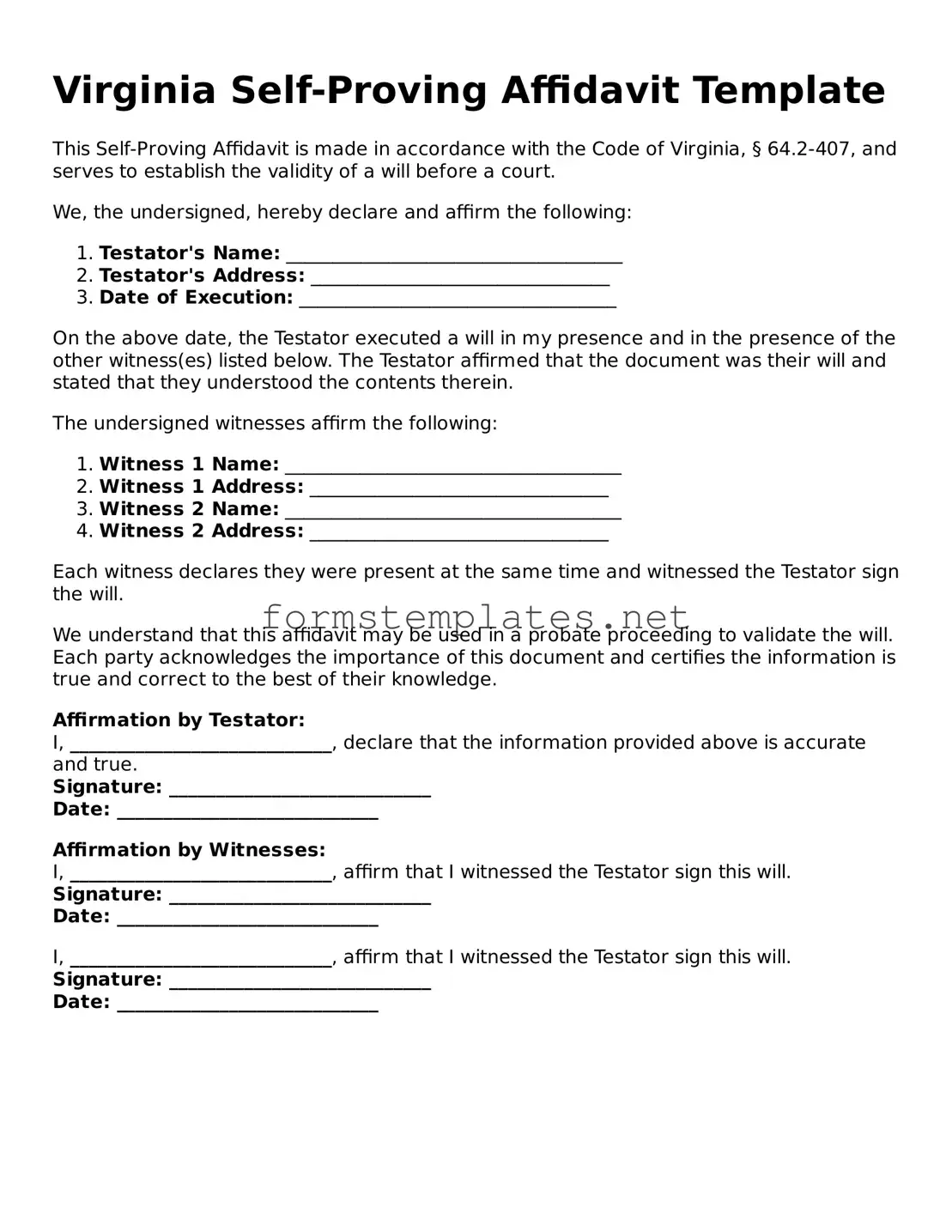Attorney-Approved Virginia Self-Proving Affidavit Template
The Virginia Self-Proving Affidavit is a legal document that allows a will to be validated without the need for witnesses to testify in court. This form streamlines the probate process, ensuring that a deceased person's wishes are honored efficiently. Understanding its importance can help you navigate estate planning with greater ease.
Open Editor Now

Attorney-Approved Virginia Self-Proving Affidavit Template
Open Editor Now

Open Editor Now
or
⇓ PDF Form
Your form still needs attention
Finalize Self-Proving Affidavit online — simple edits, saving, and download.